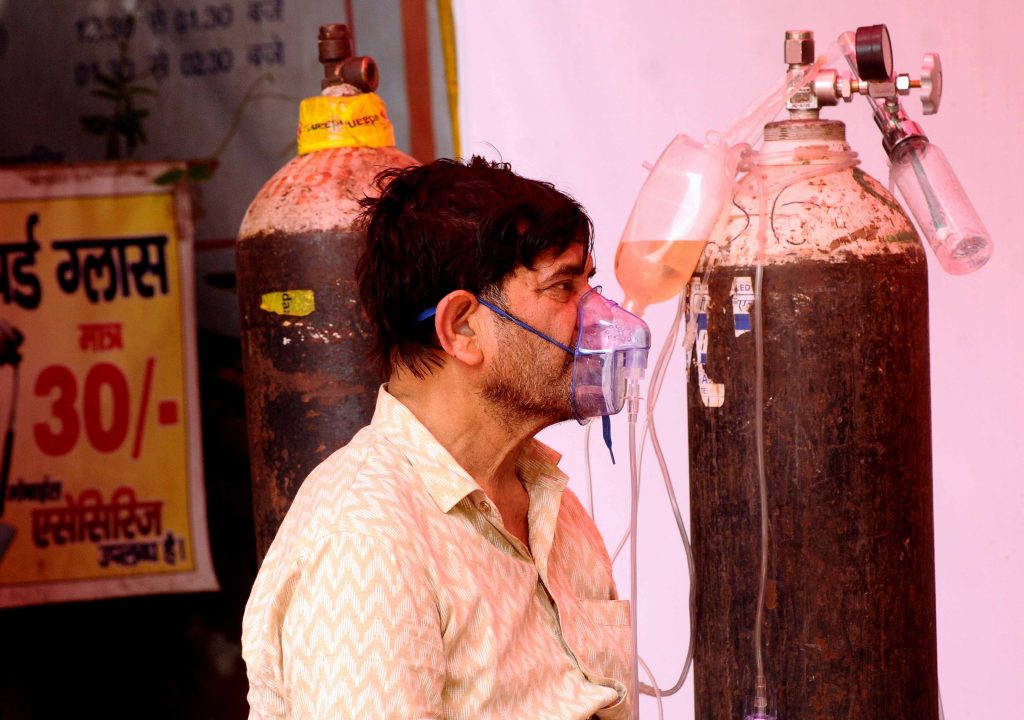At a time when India is fast turning into a crematorium due to the fury of the second wave of COVID-19, a ruthless and cynical private business has started within the country and outside over the production and supply of vaccines to tackle the pandemic. The government and the Prime Minister Narendra Modi seem to have lost their voice and are watching the agony and helplessness of millions of people like mute spectators. The letter written by the BJP president JP Nadda to Congress interim president Sonia Gandhi for her trenchant criticism of the government’s handling of the pandemic is even worse. He accuses the Congress of “weakening the fight against COVID-19” and makes the ludicrous claim that India’s fight against the pandemic, led by Modi, is “driven by unwavering belief in principles of science, support to innovation, trust in our Covid warriors and cooperative federalism.” The BJP is still continuing with its bombast.
In fact, the government’s policy of liberalising the two vaccines – Covishield and Covaxin – looks like a ploy to wash its hands off the botched up delivery system and tailor-made for the private operators to make windfall profit cashing in on the people’s fear for their life. In the first place, all over the country, it has led to wide differences in the prices that private hospitals are charging for the shots. In metros, this is not just inter-city, but also intra-city. One report reveals as per the Co-WIN portal at the beginning of this week the H N Reliance Hospital in Mumbai is charging `700 per dose for Covishield — `100 more than the price at which the Serum Institute of India (SII) sold the vaccine to private hospitals. The Nanavati Hospital in the city has set a price of `900 for one shot. Other hospitals like Dr B L Kapur Hospital in Delhi and Max Healthcare in North India which, like Nanavati, are also charging this rate as per Co-WIN data.
Similarly, the current rate specified by Apollo Hospitals and Fortis Healthcare for a dose of Covaxin across the country is `1,250 on Co-WIN which is `50 more than the price set by Bharat Biotech for the private market. However, those seeking Covaxin at Kolkata’s Woodlands Hospital would have to pay `1,500 per dose, going by Co-WIN. As of May 5, Bangalore’s BGS Gleneagles Global Hospital was also charging `1,500 per jab for Covaxin. It, however, clarified that its `1,500 charge was set for walk-in patients “only for the first two days, before the pricing and delivery mechanisms were optimised.” It currently administers Covaxin at `1,250 and charges `1,500 when it administers the vaccine in corporate offices or apartment buildings, as they involve additional travel and logistic costs.
According to some experts, the different rates are likely to cause disparity in access to vaccines. Most of the supply to private operators is now cornered by select private hospitals which are setting their own prices, while states are scrambling to access doses. The Orissa government has been forced to float a global tender for getting enough vaccines to inoculate the state’s entire population as the Centre and the private hospitals have simply failed to supply adequate number of doses. There is complete lack of transparency in the system and it looks like the prices may stabilise if the supply picks up following the simple rule of demand and supply. In other words, even in such times of national calamity the government has left vaccination to the profit-making, blood-thirsty market forces leaving the common man to wolves.
On the other hand, in the US, the Biden administration’s laudable announcement last week that it would support waiving patent protections for Covid-19 vaccines has remained only a statement of intent without tangible action till now. The gesture cannot be translated into reality as yet because of the vaccine manufacturers’ strong lobby which is pleading that the step would reduce their profits. Experts in the USA point out these companies have already made phenomenal profits by supplying their vaccines to different countries. Leaders of some wealthy European nations, including France and Germany, have opposed the relaxation of patents and are closing ranks among the member nations of the World Trade Organisation on the same page with them. But, in their own selfish interest they should stop thinking of profiting from vaccine business as the current superspread of the virus in India or anywhere else would also affect their lives since the virus does not bow to geographical boundaries.
Merely waving patents is not enough. The need of the hour is to gear up manufacturing vaccines, Richard Besser, former acting director of the Centres for Disease Control and Prevention under President Barack Obama told the New York Times (NYT)- “It’s going to take a concerted effort to transfer technology” to the rest of the world. What is of vital importance is ramping up indigenous production of vaccines with whatever technology is available. An international non-profit organisation, CARE, according to a NYT report, has pointed out equal emphasis has to be given on effective distribution of vaccine doses. It has estimated that effectively distributing a vaccine dose costs, on an average, five times as much as producing them. Even in countries where a large number of vaccine doses are available, many are going unused for lack of distribution infrastructure, including scarce medical staff to administer the doses. India is a victim of such a situation and paying for it with uncounted precious lives.
